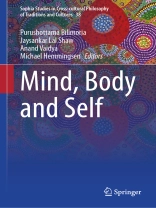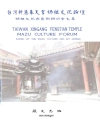This book is a unique collaboration of philosophers from across the world bringing together contemporary concepts of consciousness, the Māori conception of self, as well as Indian and Buddhist concepts of self and mental states. Contemporary concepts of consciousness include higher-order consciousness and phenomenological approaches. The idea behind this volume came from an international conference on ‘Mind, Body and Self’ held at Victoria University of Wellington; organized by the Society for Philosophy and Culture. The authors herein contribute to the relationship between concepts of self, mind, and body. The wide variety of contributors from across cultural backgrounds adds to a diverse and valuable conversation on the nature of human existence and thoughts of self. This book appeals to students and researchers working in philosophy and religious studies.
Зміст
Introduction to deliberations on Mind Body and Self.- Narrative construction of the self and the accuracy problem.- A Corporeal Self new perspectives on the Subject in the contemporary phenomenological debate.- The Subject of Consciousness higher order thought and bodily representation.- Conscious Authorship empirical models of mental causation.- Deranged Soul For Itself Hegel’s anthropological account of the mind body relation in the causes and symptoms of mental illness.- Subject to Subjectivity A conceptual shift in the discourse on self.- A Māori perspective on mind body and self.- The human personality embodied materiality and its psycho physical development a Vedānta critique.- I celebrate myself and sing myself the dehātmavāda (body as self) in ancient Cārvāka materialism and modern science.- Mental states and mind East & West.- Epilogue Silhouettes of the conscious mind are we done with the quest for a fundamental theory?.
Про автора
Purushottama Bilimoria is an Australian-American philosopher of Indian origin. He is a principal fellow at the University of Melbourne (Historical and Philosophical; Studies), Australia; a senior research fellow with the Oxford Centre for Hindu Studies, The University of Oxford; former distinguished teaching and research faculty at the Graduate Theological Union in Berkeley; a Chancellor’s Scholar, lecturer and interim visiting professor at the University of California, Berkeley; former visiting scholar with the Institute for South Asia Studies, University of California at Berkeley; formerly an honorary professor at the Deakin University and of the Australia India Institute in Melbourne, Australia; he is co-editor-in-chief of Sophia, associate editor and ‘Journal of Dharma Studies’ (Springer), and co-editor of Routledge History of Indian Philosophy, (2018), co-editor/author of Companion to Indian Ethics, Women Justice Bioethics and Ecology (2024), and various other works. He is also the co-editor-in-chief of the Sophia Studies in Cross-cultural Philosophy of Traditions and Culture (currently at 45 volumes; with Springer).
Jaysankar Lal Shaw’s research in the field of Indian and Comparative Philosophy is considered to be pioneering. His aim is to suggest some new solutions which involve both scholarship and creativity. His papers have been the first of their kind in many Western journals of philosophy and logic. The seminars he organised were also the first of their kind. He has presented some 200 papers at conferences or seminars in several countries. He has also received around 130 funded invitations from institutions or universities around the world, directed orientation courses on comparative philosophy, and received a grant from the National Endowment for Humanities (Washington, D.C.) to train American philosophers in Hawaii. In 1993, he represented New Zealand at the World Parliament of Religions in Calcutta. Author of 15 books, including The Collected Writings of Jaysankar Lal Shaw: Indian Analytic and Anglophone Philosophy, published by Bloomsbury, London (2016), and over 100 articles, Dr Shaw has also been honoured with two Festschrifts Comparative Philosophy and J.L. Shaw (2015) published by Springer, and Contemporary Philosophy and J.L. Shaw (2006), published by Punthi Pustak.
Anand Vaidya is an associate professor of philosophy and Director of the Centre for Comparative Philosophy at San Jose State University. Trained as an analytic philosopher, his current areas of research include epistemology, philosophy of mind, critical thinking, and comparative philosophy, with an expanded interest in cross-cultural and multidisciplinary study of mind, ways of knowing about reality, and critical thinking in democracy. His primary interest in this area is in Indo-Anglo-Analytic philosophy that engages cognitive science.
Michael Hemmingsen is an Associate Professor in the International College of Tunghai University in the Republic of China, Taiwan. He received his Ph D from Mc Master University, Canada. His research focuses on social and political philosophy – often with a comparative dimension – and the philosophy of sport and games.












